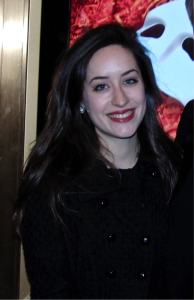Too often, human trafficking is referred to as a “trade,” a word connoting a business transaction between willing parties. To cloak the crime in terms of economics and commerce is to place significance on the parties conducting the exchange, and shifting focus from the countless victims worldwide we should be protecting.
Discussing human trafficking as “trade,” masquerading in the business vernacular, offers insight into the way we treat the subject. The topic of human trafficking is an uncomfortable one, discussed in formal, often academic settings of panels, non-profit meetings, and legislative efforts. For all its prevalence in the United States and abroad, “human trafficking” is rarely heard in presidential debates, on the news, or in classrooms.
Why such removal? It makes us uncomfortable. We often choose to distance ourselves from issues that seem controversial, things not polite to talk about in elevators or at dinner tables. Fifty years ago this conversation may have been about same-sex marriage. A hundred years ago, this controversial conversation was about a woman’s right to vote. Language is a tool that helps us create that boundary, isolating us from things we feel discomforted by.
This divide in our speech is partially the cause of why we treat those “traded” as criminals rather than victims. By creating an “us and them” attitude, we are at best classifying those victimized as social outcasts, and at worst pawns and offenders that do not operate within our own sphere of existence.
Yet for all our attempts to turn a blind eye, human trafficking is knit into some of the most cherished and celebrated American traditions. Just recently, many throughout the country were fixed on their televisions, watching with baited breath a football game broadcast from Santa Clara, California. In the neighboring city of Sunnyvale, volunteers of the Grateful Garment Project have already spent days stuffing backpacks with clothing, toiletries, flashlights, and reading materials. The backpacks are prepared for those victims of the sex “trade” who will assuredly will be caught by police, arrested, and brought in for questioning. In 2011, Texas Attorney General Greg Abbot called the Super Bowl the “largest human trafficking incident in the country.” While this estimate has been challenged by some, it stands to reason that a large influx of (mostly male) visitors with disposable cash would likely increase demand for prostitution, which fuels trafficking for commercial sexual exploitation. Indeed, as research conducted by Arizona State University School of Social Work demonstrated, there were “distinct victim movement and marketing trends that tend to correspond with the build up towards the Super Bowl [2014].”
The CSE Institute opts to consciously address the crime of human trafficking by recognizing those who are exploited as victims, not criminals. Further, we do not hide from this reality by distancing ourselves from it, with language that falsely implies a business interaction of “trade” between equals. By changing the way we speak of human trafficking, we can begin, very humbly, to bridge that distance.
Sarah Burke is currently a first-year law student at the Villanova University Charles Widger School of Law. Sarah is from Providence, Rhode Island and received degrees in English and Philosophy from The Catholic University of America. After graduating from law school, Sarah hopes to pursue a career in litigation or art law. Her dream job is to be general counsel for the Smithsonian.



